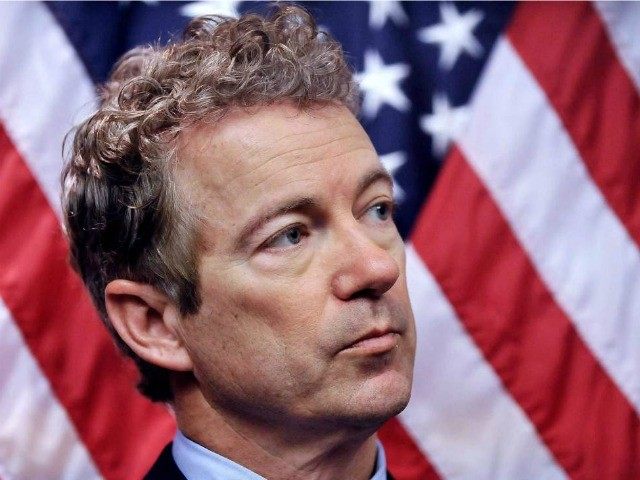FRANKFORT, Ky. (AP) — The Kentucky Republican Party has approved a presidential caucus allowing Rand Paul to run for president and re-election to his U.S. Senate seat at the same time without running afoul of state law.
State law bans candidates from appearing on the ballot twice in the same election. Paul tried without success to convince the state legislature to change the law. But a presidential caucus allows voters to vote for Paul for president on March 5 and then vote for him again for re-election to his Senate seat during the primary election on May 17.
“This is a chance for someone from Kentucky to be on the national stage to influence the debate and really be in the competition for who our next president is,” Paul told a handful of supporters outside of the Capital Plaza Hotel before the meeting began.
But most committee members said their vote was motivated not by Paul’s candidacy, but by a desire to make Kentucky a player in presidential politics. That’s why Republicans crafted the caucus to appeal to as many of the 17 declared Republican candidates as possible. The plan calls for Kentucky’s delegates to be split proportionally rather than “winner takes all,” and candidates only need to get 5 percent of the vote to qualify for delegates. That’s a threshold much lower than other primary states.
“This is not about Sen. Paul in my mind. This is about making Kentucky relevant,” committee member Troy Sheldon said. “I think it’s the best thing for voters.”
While Paul has been campaigning heavily in early primary states such as Iowa, New Hampshire and South Carolina, he has waged a secondary campaign in his home state to approve the caucus. The biggest obstacle appeared to be the estimated $500,000 cost of the caucus and who would pay for it. The state party has less than $170,000 in cash on hand according to its latest disclosure report.
U.S. Sen. Mitch McConnell endorsed the caucus publicly, but only because Paul angered some in the party when he failed to transfer $250,000 to the state party despite saying he had already done so in a letter to party officials. Friday, Paul suggested the party could pay for the caucus by collecting donations from voters at caucus locations.
“I am for keeping our primary. It’s nothing against Sen. Paul. There are other ways he can still run for president,” said committee member Sam Pierce, the vice chairman of the Harrison County Republican Party.
But most committee members’ fears were satisfied by an amendment that requires Paul to transfer $250,000 to the Republican Party of Kentucky by Sept. 18. If the money is not transferred by that date, the caucus will be canceled and revert back to the primary.
Republicans began the meeting with a prayer, asking for God’s wisdom and that “your will would be done here today.” The vote itself followed a closed-door session to discuss the party’s finances followed by hours of debate and amendments.
Paul needed a two-thirds vote for the caucus to pass, and he wasn’t taking any chances. His staff secured permission or Paul to vote for the caucus himself.

COMMENTS
Please let us know if you're having issues with commenting.